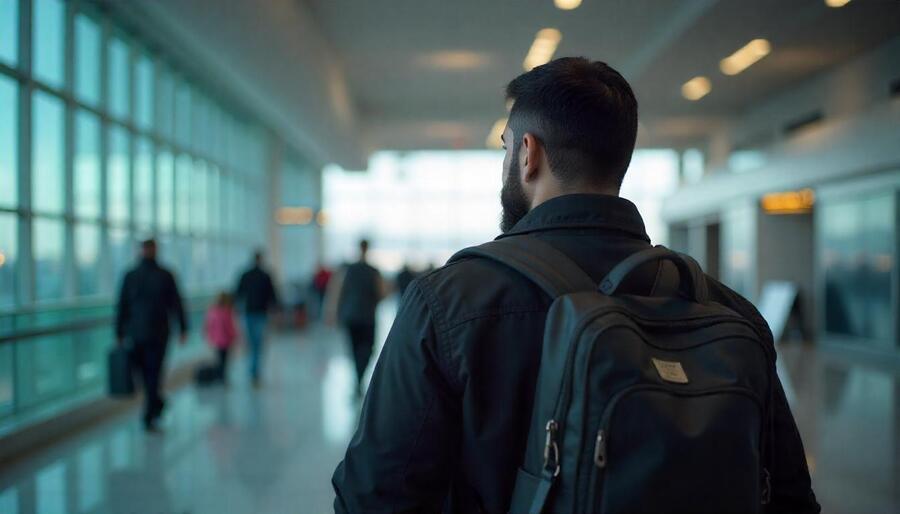≡-US Tourism Sees Downturn In Canadian Arrivals And Currency Transactions Amid New White House Crackdown – Viral of Today
<> Viral of Today <>
Home » America Travel News » US Tourism Sees Downturn In Canadian Arrivals And Currency Transactions Amid New White House Crackdown Monday, June 2, 2025The US is witnessing a noticeable decline in Canadian tourist arrivals and currency exchanges, largely influenced by recent White House immigration policies that have heightened travel restrictions and enforcement. This shift has prompted many Canadian visitors to reconsider their trips, contributing to a downturn in tourism revenue and impacting local economies that once thrived on vibrant cross-border travel. The combination of stricter immigration measures and growing concerns over traveler experiences has reshaped international travel patterns, leading to economic challenges within the US travel and hospitality sectors.Shifts in International Travel Patterns Highlight Challenges for US Tourism Amid Economic ConcernsOnce bustling with crowds of visitors from Canada exchanging their currency and bringing vibrancy to local economies, the US has recently experienced notable shifts in international travel trends. Where thousands of Canadian tourists once frequented American airports, exchanging Canadian dollars for US currency with ease, a new report now reveals a downturn in foreign arrivals, signaling broader challenges ahead for the travel sector and associated businesses.A recent analysis based on data from U.S. Customs and Border Protection shows that just under two million international travelers passed through the United States’ major airports in the past month, marking a 6% decrease compared to the same timeframe last year. This dip is even more pronounced when considering flight bookings from Europe to the U.S., which have fallen by approximately 12% through August of this year.This emerging trend is driven by a combination of factors. Overseas visitors are reportedly reconsidering their travel plans to the U.S., opting instead for destinations in Europe or vacationing closer to their home countries. Some travelers cite the heightened immigration enforcement policies promoted by the White House as a deterrent, alongside growing media reports about foreign tourists facing detention or deportation upon arrival in the United States.While international tourism contributes only a modest share to the overall US economy, the decline still raises concerns about its impact on the travel and hospitality industries. Tourism and travel together constitute around 3% of the nation’s gross domestic product (GDP). Within this figure, overseas visitors represent a small but vital fraction. Thus, a drop in inbound international tourists is expected to have a limited effect on the broader economic landscape. However, it nonetheless reflects shifting global travel preferences and policy challenges that could influence future growth in this sector.These developments come at a time when many small to medium-sized businesses (SMBs) in the United States face their own set of uncertainties. Research from PYMNTS Intelligence indicates that about 20% of SMB owners fear for their survival over the next five years, largely due to the ongoing complications surrounding U.S. tariffs and trade policies. This worry among business owners adds another layer of economic vulnerability amid changing international travel dynamics.Changing Travel Preferences and the Impact of PolicyInternational tourism has long been a critical driver of cultural exchange and economic activity in the United States. For decades, Canadians, Europeans, and travelers from around the globe contributed to the bustling activity at American airports and tourist hotspots. The tradition of tourists exchanging their foreign currencies, such as Canadian dollars, to enjoy shopping, dining, and leisure within the U.S. was a common and welcomed practice.However, recent years have seen evolving travel patterns shaped by geopolitical events, shifting immigration policies, and global economic conditions. The reported 6% decline in foreign arrivals at U.S. airports signals a notable departure from past trends. For Europe, a 12% drop in flight bookings to the U.S. accentuates the challenge faced by American tourism stakeholders in retaining their share of international visitors.Sources indicate that apprehensions about US immigration enforcement, amplified by government policies and media coverage of visitor detentions and deportations, have played a significant role in influencing travelers’ choices. Visitors from abroad are reportedly opting for destinations perceived as more welcoming or logistically simpler, with Europe emerging as a favored alternative, or choosing vacations closer to home to avoid potential difficulties.Economic Implications for Tourism and BusinessWhile the overall share of tourism in the U.S. economy may be modest, it remains an important sector, particularly in regions heavily reliant on international visitors. The estimated 3% contribution of travel and tourism to the GDP encompasses a range of industries, from airlines and hotels to restaurants and retail outlets. A downturn in visitor numbers can ripple across these sectors, affecting employment, revenue, and regional economic vitality.Nevertheless, analysts caution that the current decrease in overseas visitors is unlikely to cause a major shock to the American economy at large. The relatively small portion of GDP attributed specifically to foreign travelers means that other domestic factors will continue to drive economic performance.At the same time, the business environment for small and medium enterprises is becoming increasingly precarious. The PYMNTS Intelligence study reveals that one-fifth of SMBs are concerned about their long-term viability, citing trade tensions and tariff pressures as significant obstacles. These concerns underscore the broader economic challenges that American businesses face amid global trade uncertainties, beyond the travel and tourism domain.Looking Ahead: Navigating Travel and Economic UncertaintiesThe decline in foreign arrivals to the US highlights the interconnectedness of travel trends, government policies, and economic health. For tourism stakeholders, adapting to shifting traveler sentiments will be critical in regaining momentum. This may involve addressing concerns about immigration enforcement, improving visitor experiences, and strengthening international relations to restore confidence among prospective travelers.Additionally, supporting SMBs through trade uncertainties and tariff-related challenges will be essential to fostering a resilient economic environment. With a significant portion of businesses worried about their survival, policymakers and industry leaders alike will need to collaborate on strategies that mitigate risks and promote sustainable growth.The US is seeing fewer Canadian tourists and reduced currency exchanges due to stricter White House immigration policies, which are reshaping travel choices and impacting tourism revenue. This shift reflects growing traveler concerns and changing economic dynamics.While the United States remains a premier travel destination, the current landscape underscores the importance of responsive governance and market agility in a world of rapidly changing travel behaviors and economic pressures. By understanding the root causes behind these shifts and addressing them thoughtfully, the US can position itself to welcome back international visitors and ensure a thriving economy for years to come.
This information will surprise you!
See also
- Read until the end to discover everything.
- Important information you need to know.
- Interesting facts and helpful tips.
Conclusion
Did you enjoy the news? Keep following us daily!













